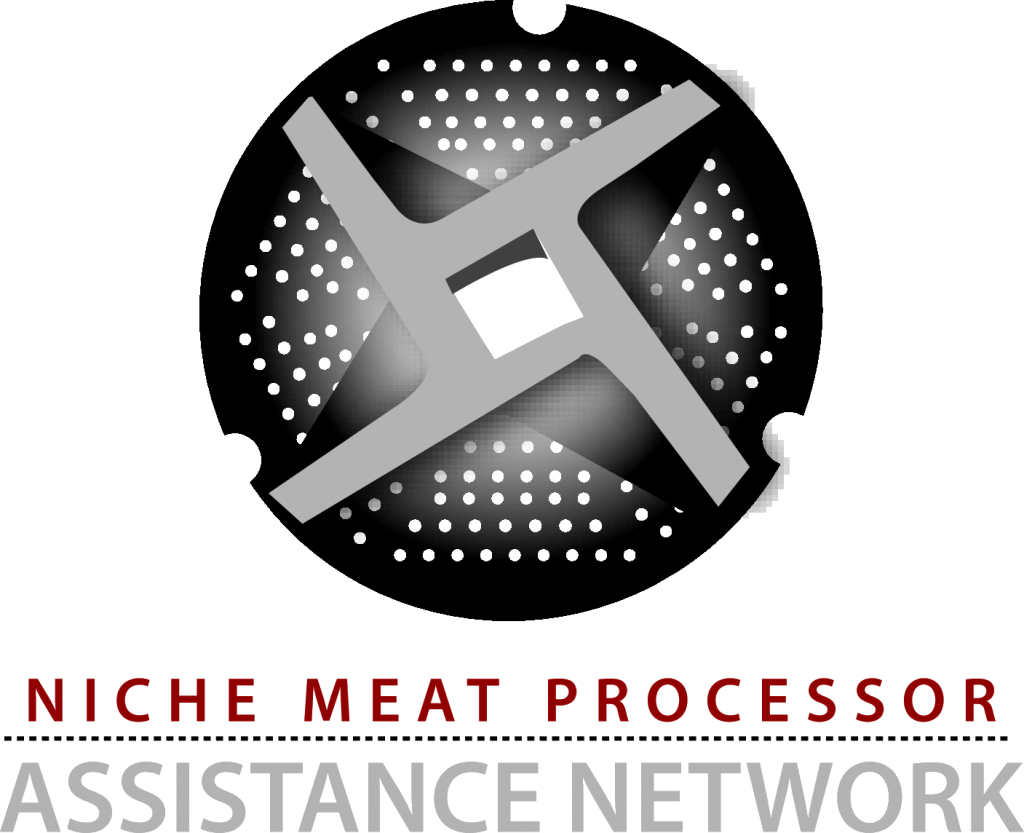Page updated 9.1.2022
If you are selling meat, it has to be inspected (both slaughter & butchering) by either a state inspection program or a USDA Food Safety Inspection Service inspector. We will go into more details about what that means below.
If you are selling a live animal to a person or a group of people who will then get it slaughtered and butchered, you can utilize a custom exempt facility (or licensed mobile kill truck). Custom exempt facilities are generally licensed by the state department of agriculture or health. They are still required to following FMIA rules and Humane Handling rules.
See a summary of what all these mean in this Meat Processing 101 fact sheet.
What is federal inspection?
Federal Inspection (USDA)
The United States Department of Agriculture’s Food Safety and Inspection Service (USDA FSIS) is responsible for this type of inspection. Federally inspected products can be shipped over state lines (interstate commerce) and internationally to many countries. Federal inspection requires a HACCP plan, SSOPs, daily inspection of processing facilities, and, if the plant slaughters livestock, antemortem and postmortem inspection of every animal. As of 2020, all inspected plants must also have a recall plan in place.
What is state inspection?
State Inspection
State inspection is required by law to be “at least equal to” federal inspection in terms of regulatory rigor. However, state inspected meat and poultry products cannot be sold across state lines (restricted to intrastate commerce) unless the state and the plant both participate in the Cooperative Interstate Shipment (CIS) program.
Twenty-seven states offer state meat inspection programs in the U.S. USDA FSIS maintains a listing of these programs. Only 25 of these states offer state poultry inspection in addition to red meat inspection.
What is custom exempt?
Custom-Exempt
A custom-exempt plant can only slaughter and process livestock for the exclusive use of the owner(s). Like a retail exempt plant, the facilities will still be subject to periodic, risk-based inspection by USDA FSIS and/or state authorities. Custom exempt plants still have to comply with the Federal Meat Inspection Act (FMIA) and Poultry Products Inspection Act (PPIA), along with Humane Methods of Slaughter Act (HMSA). This directive 5930.1 explains more how USDA FSIS reviews custom plants. Custom exempt plants may also operate a retail exempt butcher counter in which they sell meat they processed from USDA (or state) inspected carcasses that were not slaughtered at their custom exempt plant. Custom-exempt slaughter may happen on a farm using a licensed mobile slaughter trailer or at a brick and mortar facility. Custom exempt meat is marked “not for sale”. NMPAN recently published an Extension publication (2022) about how producers in Oregon can use custom-exempt regulations to pre-sell a live animal (or portions of one) and still comply with federal and state regulations. The contents of the publication apply to most states interpretation of USDA FSIS custom exempt regulations.
Other options:
Retail-Exempt
Retail exemption allows a meat processor (or a farmer that likes to do their own butchery) to sell meat at its own retail storefront (or direct to consumer via other methods such as farmers market sales or a restaurant) without developing a HACCP plan or being inspected daily by USDA FSIS. However, the processor is still subject to periodic, risk-based inspection by USDA FSIS and/or state and county authorities (e.g. county health departments). In addition, the meat used to produce retail products (fresh cuts or processed meats) must come from livestock inspected by USDA FSIS or the state inspection agency in the processor’s own state. See the full CFR 303.1 regulations here.
On-Farm Field Dressing
This is limited to only a handful of states which allow the customer (new owner of the animal) to slaughter that animal on the farm and then take the carcass home or to a butcher shop for fabrication. In most states that even allow this, the farmer cannot help with the slaughter. According to this spreadsheet, there are only 10-12 states that allow the farmer (producer) to help “field dress” the animal for the new owner. If this is something you are considering, it would be wise to call your department of agriculture to find out the rules on it.
Other State Rules
States often have their own set of rules and exemptions. This map from the Farm-to-Consumer Legal Defense Fund is helpful in discerning the different state rules for red meat and poultry.


